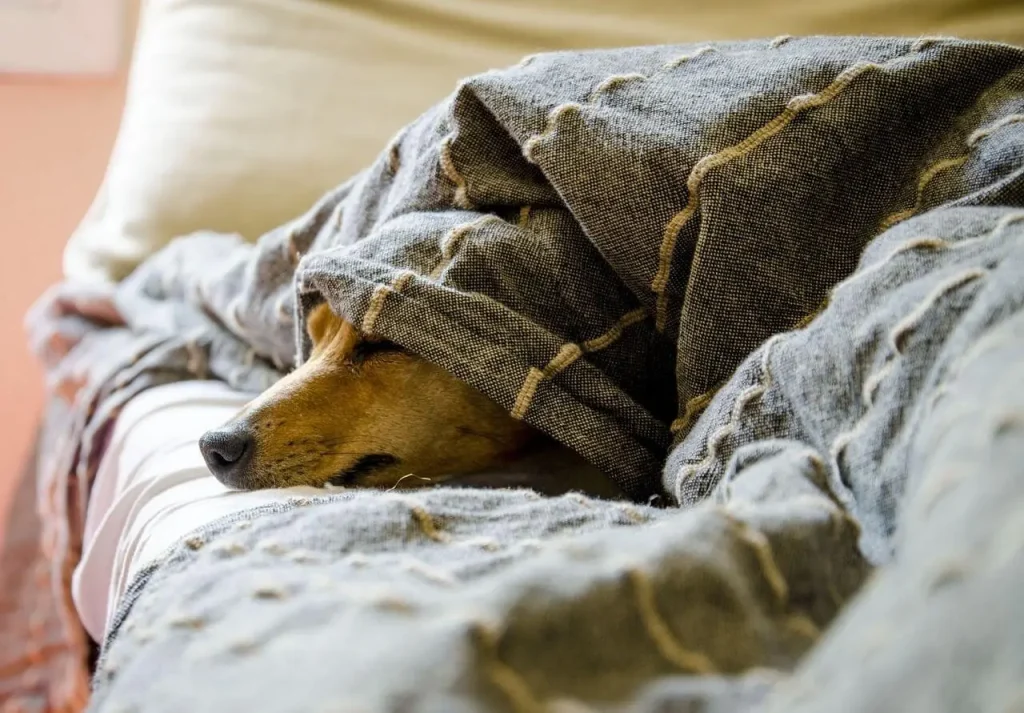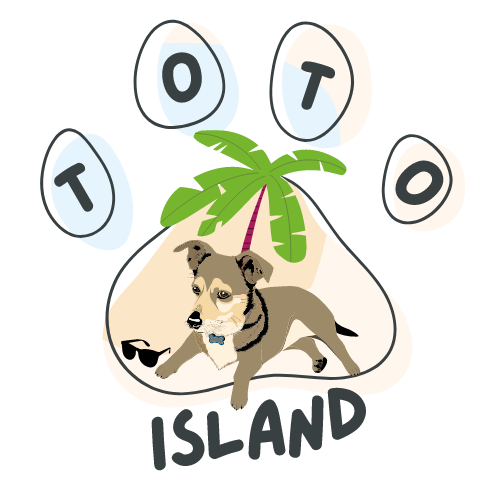What to feed a dog with diarrhea: Tips for fast recovery
Diarrhea in dogs can be a concerning yet common occurrence. While it’s often a temporary condition, knowing what to feed your dog during this time is crucial for their recovery. This guide explores the best foods to offer a dog with diarrhea, how to prevent dehydration, and when to seek veterinary care. Whether your dog’s upset stomach is a minor issue or a more persistent concern, these tips will help you care for your furry friend with confidence. Each section below will provide practical advice on addressing diarrhea in dogs, ensuring they get back to their happy, healthy selves as quickly as possible.
Understanding the causes of diarrhea in dogs
Diarrhea in dogs can occur for various reasons, ranging from mild dietary indiscretions to more serious health issues. Identifying the cause is key to providing the appropriate care. Here are some common reasons why your dog might have diarrhea:
- Dietary changes: A sudden switch in food or sneaking scraps from the table can upset your dog’s stomach.
- Food intolerance or allergies: Some dogs may react poorly to certain ingredients, such as grains or specific proteins.
- Ingesting harmful substances: Consuming spoiled food, toxic plants, or household chemicals can lead to digestive distress.
- Infections: Bacterial, viral, or parasitic infections (like Giardia or worms) can cause prolonged diarrhea.
- Stress or anxiety: Situational stress, such as moving to a new home or meeting new animals, can sometimes trigger diarrhea.
- Underlying health conditions: Chronic illnesses such as inflammatory bowel disease (IBD) or pancreatic insufficiency may also be culprits.
If the diarrhea persists for more than 24-48 hours or is accompanied by other symptoms like vomiting, lethargy, or loss of appetite, consult your veterinarian promptly.
When to seek veterinary attention
While many cases of diarrhea in dogs can be managed at home, certain situations call for professional veterinary care. Knowing when to act can make a significant difference in your dog’s health and recovery.
Signs you should contact a veterinarian
- Persistent diarrhea lasting over 48 hours: If your dog’s diarrhea continues for more than two days, it could indicate a deeper health issue that needs attention.
- Presence of blood or mucus in stool: Bloody or mucus-filled diarrhea can be a sign of severe infection, inflammation, or internal injury.
- Vomiting alongside diarrhea: This combination increases the risk of dehydration and may point to a serious condition.
- Lethargy or weakness: If your dog is unusually tired or listless, it may be due to loss of essential fluids and nutrients. -> Dog fitness treatment
- Loss of appetite: Refusal to eat for over a day, coupled with diarrhea, is a red flag for digestive or systemic issues.
- Fever: A higher-than-normal body temperature indicates an underlying infection or inflammation.
- Diarrhea in puppies or senior dogs: These age groups are more vulnerable to dehydration and complications.
What to expect at the vet
A veterinarian will likely perform a physical exam and may request stool tests or blood work to identify the underlying cause. In some cases, imaging or further diagnostic procedures might be necessary. Prompt veterinary care ensures your dog receives the appropriate treatment, whether it’s medication, fluid therapy, or dietary adjustments.
What to give a dog with an upset stomach?
When your dog is experiencing diarrhea, providing a gentle and easily digestible diet can help soothe their upset stomach and promote recovery. Here are some veterinarian-approved options to consider:
1. Boiled chicken and rice
A classic bland diet for dogs with diarrhea, boiled chicken and rice are easy to digest and gentle on the stomach. Ensure the chicken is skinless and boneless, and cook the rice plain without seasoning or oil.
2. Plain boiled potatoes
Unseasoned boiled potatoes are another mild option. Remove the skin and mash the potatoes before serving in small amounts.
3. Bone broth
Bone broth is not only hydrating but also packed with nutrients. It can encourage your dog to eat and is especially beneficial if they’ve lost their appetite. Ensure it is homemade or store-bought without onions, garlic, or other harmful additives.
4. Prescription diets
Your veterinarian may recommend a specialized prescription diet formulated to aid digestion and manage diarrhea. These diets are often low in fat and high in digestible nutrients.
If you choose me as your dog masseur, I will assess your dog’s condition every time, and if I find that your pet needs rest instead, I will communicate that. For dog massage treatments, feel free to contact me in the Saint Augustine area! Give me a call, and let’s schedule the first appointment! (904) 377 6291
What to feed a raw fed dog with diarrhea?
Fresh or plain pumpkin! Pumpkin is a natural and good source of fiber that can help regulate digestion. Use plain canned pumpkin (not pumpkin pie filling) and add a small amount to your dog’s meal. For small dogs, start with 1 teaspoon; for larger dogs, use up to 1 tablespoon.
Feeding tips
- Start with small, frequent meals instead of one large serving.
- Gradually reintroduce your dog’s regular food once symptoms improve.
Providing these gentle food options can help your dog recover comfortably. If symptoms persist or worsen, consult your veterinarian.

Hydration is key: Preventing dehydration
One of the biggest risks associated with diarrhea in dogs is dehydration. Frequent loose stools can cause your dog to lose vital fluids and electrolytes, which are essential for their overall health. Keeping your dog hydrated is crucial for a speedy recovery.
Signs of dehydration in dogs
- Dry gums or mouth
- Sunken eyes
- Lethargy or weakness
- Loss of skin elasticity (skin doesn’t bounce back quickly when gently pulled)
How to keep your dog hydrated
- Provide fresh water frequently: Ensure your dog has constant access to clean, fresh water. Encourage them to drink small amounts regularly.
- Offer electrolyte solutions: Products like Pedialyte (unflavored) can help replenish lost electrolytes. Consult your veterinarian for the correct dosage.
- Incorporate hydrating foods: Broths and plain cooked rice mixed with water can provide both hydration and nutrition.
- Ice chips: If your dog is reluctant to drink, offering ice chips can be a gentler way to hydrate them gradually.
When to seek veterinary help
If your dog is not drinking water or continues to show signs of dehydration despite your efforts, consult a veterinarian immediately. Severe dehydration may require subcutaneous or intravenous fluids to restore balance.
By addressing hydration proactively, you can help your dog recover safely and prevent further complications.
What to avoid feeding a dog with diarrhea
When your dog has diarrhea, it’s just as important to know what not to feed them as it is to provide the right foods. Certain ingredients can worsen gastrointestinal distress or delay recovery.
Foods to avoid
- High-fat foods: Greasy or fatty foods, like bacon or fried chicken, can be hard to digest and may aggravate diarrhea.
- Dairy products: Even if your dog normally tolerates dairy, their sensitive stomach may react poorly to milk, cheese, or yogurt during diarrhea.
- Seasoned or spicy foods: Avoid giving your dog food with salt, spices, or seasonings, which can irritate the stomach lining.
- Raw food diets: Raw meats or eggs carry a risk of bacterial contamination, such as Salmonella, which can exacerbate diarrhea.
- Human junk food: Chips, cookies, or sugary treats should be avoided at all costs, as these offer no nutritional value and can worsen symptoms.
- Bones and chewy treats: Hard-to-digest items like bones, rawhide, or tough jerky treats can place additional strain on your dog’s digestive system.
Why these foods should be avoided
During diarrhea, your dog’s digestive system is already strained. Feeding foods that are difficult to digest can lead to prolonged symptoms, discomfort, or complications like pancreatitis.
Stick to bland, easily digestible options until your dog’s stools return to normal.
How long to wait before feeding your dog again
After an episode of diarrhea, your dog’s digestive system needs time to rest and recover. Knowing when and how to reintroduce food is key to ensuring their continued improvement.
The fasting period
- Adult dogs: It’s generally recommended to withhold food for 12–24 hours after diarrhea starts. This allows the stomach and intestines to settle.
- Puppies and senior dogs: These age groups are more vulnerable to hypoglycemia (low blood sugar). Instead of fasting, offer small, bland meals right away.
During the fasting period, always provide fresh, clean water to prevent dehydration.
Reintroducing food
- Start with small, frequent meals of bland, easily digestible food (e.g., boiled chicken and rice or plain boiled potatoes).
- Feed a small portion every 3–4 hours instead of one large meal.
- Monitor your dog closely for signs of recurring diarrhea or other symptoms.
Gradual return to regular diet
Once your dog’s stools begin to firm up, slowly transition them back to their regular diet over 3–5 days. Mix increasing amounts of their normal food with the bland diet to ease the change.
By carefully timing the reintroduction of food and observing your dog’s response, you can help them recover fully without unnecessary setbacks.
Preventing future digestive upsets in dogs
While diarrhea is sometimes unavoidable, there are steps you can take to reduce the likelihood of future episodes. Preventive care and mindful feeding can go a long way in keeping your dog’s digestive system healthy.
1. Introduce dietary changes gradually
Sudden changes in food can upset your dog’s stomach. When switching brands or types of food, gradually mix the new food with the old over 7–10 days to help your dog adjust.
2. Avoid table scraps
Human foods often contain ingredients that are hard for dogs to digest, like spices, fats, and artificial additives. Stick to dog-friendly treats and meals to avoid unnecessary stomach upset.
3. Keep harmful substances out of reach
Ensure your dog cannot access toxic plants, household cleaners, or spoiled food. Regularly check your yard and home for hazards.
4. Use probiotics for gut health
Probiotic supplements can promote a healthy gut microbiome, helping your dog build resilience against minor digestive issues.
5. Maintain regular veterinary checkups
Routine vet visits can identify and address potential health issues before they escalate. Discuss any recurring digestive problems with your vet to develop a tailored care plan.
6. Monitor for stress triggers
Stress can sometimes lead to diarrhea in dogs. Ensure your dog feels safe and comfortable during major life changes, like moving or meeting new pets.
By taking proactive steps and monitoring your dog’s diet and environment, you can minimize the risk of future digestive problems.
Diarrhea in dogs can be concerning, but with the right care and attention, most cases resolve quickly. Providing a bland, easily digestible diet, ensuring hydration, and avoiding foods that can worsen symptoms are crucial steps in helping your dog recover. Knowing when to seek veterinary attention can prevent complications and ensure your pet’s well-being.
Preventative measures, such as gradual dietary changes, probiotics, and regular checkups, can reduce the risk of future digestive issues. By understanding the causes and proper management of diarrhea, you can confidently support your furry friend through a speedy recovery and back to their playful self.
Your dog depends on you for comfort and care during these times, and your proactive approach makes all the difference.
If you choose me as your dog masseur, I will assess your dog’s condition every time, and if I find that your pet needs rest instead, I will communicate that. For dog massage treatments, feel free to contact me in the Saint Augustine area! Give me a call, and let’s schedule the first appointment! (904) 377 6291
Source of cover image: Pixabay

